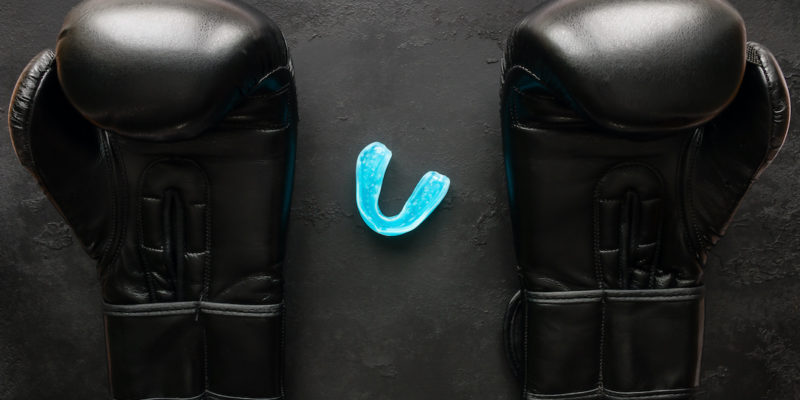Why You Should Protect Your Teeth with an AgilityGuard

If you play contact sports, you should be wearing an agility guard. An AgilityGuard is a device made to protect your smile in case of injury caused during activity. In this article, we’ll explain how we make the AgilityGuard and provide you with a full list of the benefits.
What is an AgilityGuard?
Dr. Ania believes AgilityGuard is the best sports protection mouthguard. The potential to improve athletic performance by using a properly designed mouthguard is not a new idea. For around 40 years, dentists have found increased athletic performance when athletes use a properly fitting mouth guard. Dr. Ania is a qualified Chan-certified dentist that can help you determine whether an AgilityGuard would provide any potential improvement in your athletic performance.
Mouthguards in sports are worn over the teeth to protect them from potential impacts to the face and head. These are one of the most important pieces of equipment for athletes across the board participating in contact sports, like: football, basketball, baseball, soccer, hockey, skateboarding, gymnastics, mountain biking, and more. Colgate explains that a mouth guard typically covers the upper teeth, and are designed to protect your smile against broken teeth, cut lips, and other damage to your mouth.
The AgilityGuard is one that Dr. Ania makes for her active patients who want to protect their mouth while they play sports. Dr. Ania believes that the agility guard is the best sports protection mouthguard there is. In some studies, the right guard can actually help you improve your athletic performance. Your mouth is protected, helping you maintain your focus. The AgilityGuard is also one that even world cup champions use in competitions. Trust what the pros use, and invest in a custom-made guard for your mouth.
AgilityGuard vs. Other Types
In addition to the AgilityGuard, there are other types of mouthguard on the market. Those include:
- Boil-and-bite: These mouth protectors are made up of a thermoplastic material that you shape at home to fit your teeth. First, you soften the mouthguard by placing it in hot water. Then, you put the softened mouthguard into your mouth and use your fingers to press it onto the molars and front teeth. When in place, you bite down for 20 seconds before you remove the device and run it under cold water.
- Stock guards: These are one-size-fits-all mouth guards that come already shaped and ready to wear. However, since they’re not made specifically for your own teeth, they rarely fit as they should. Their bulkiness and poor fit can make breathing difficult. Of all the mouth guard options, stock guards offer the least amount of protection.
How to Care for Your Mouth Guard
To help your mouth guard last you for a long time, you need to take proper care of it. To care for your mouth guard, follow these tips:
- Rinse your mouth guard with cold water or a mouthwash before and after each use. You can also clean it with mild soap and a toothbrush.
- Clean the mouthguard with cool, soapy, water and rinse it thoroughly.
- Put the mouth guard in a firm perforated container to store it. The air circulation will help prevent damage.
- Protect the mouth guard from high temperatures, like hot water and direct sunlight.
- Occasionally inspect your mouthguard for wear and tear.
- Bring your mouth guard to your dentist each time you come in for a dental checkup.
Common Dental Injuries Caused by Sports
A wide range of injuries can happen to the mouth when playing sports. A study published by the US National Library of Medicine lists that common dental injuries in sports include tooth fractures and temporomandibular joint dislocation. More than 5 million teeth are impacted by injury in the United States every year, accruing nearly $500 million in cost of care. The average cost of treating an avulsed tooth over a lifetime is between $5,000 and $20,000. However, by wearing a mouth guard you can prevent most of these painful, costly injuries.
The study also found that while injuries vary, they can affect the upper lip, maxilla, and the central maxillary incisors 90% of the time. Not only can these injuries affect the way you play the sport as an athlete, but the injury can also affect your day-to-day life as well, limiting how you talk and eat.
Make an Appointment with Dr. Ania
If you play sports or are involved in frequent physical activity, invest in a mouth guard today. The AgilityGuard lasts much longer than the store-bought options, and they also fit snug to the shape of your mouth. When it comes to contact sports, make sure you always wear an AgilityGuard to protect your smile.
If you’ve decided that you need a mouth guard to protect your oral health, don’t hesitate by calling us for an appointment at (303)-872-9940. Guard your smile from the sport you love now!


